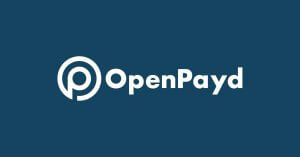OpenPayd: Fintech’s Sharpest Swiss Army Knife
In 2018, progressive fintech entrepreneur Ozan Özerk founded OpenPayd.

Since its launch, OpenPayd has become one of the fastest growing and most reputable Banking as a Service providers in the space. Founder Ozan Özerk displays a visionary approach to the fintech industry, identifying better and more convenient ways to offer banking and payment solutions for businesses around the world.
The Rise of Embedded Finance
“Embedded Finance comes with monumental opportunities and challenges” – Ozan Özerk
In a report dating back to the latter months of 2021, Fintechmagazine.com stated that “embedded services are to see a rapid increase in the next five years and generate a 300-billion-dollar revenue in Europe alone.”
The late 1990s gave birth to the e-commerce industry and its biggest players such as Amazon, Alibaba, Ebay, and so on. Two decades later, in 2020, the global pandemic was responsible for accelerating the growth of the digital commerce trade which saw “sales growing by 27.6% in 2020” (from Social Shepard), triggering widespread focus on embedded finance.
The rise of embedded finance and Banking as a Service products in turn, now unlock even greater potential both for non-financial companies and the finance industry—not limited to fintech companies, but for more traditional setups such as banks and insurance ventures as well. The potential financial benefits of expanding into new areas has recently come to the attention of several financial institutions as a near-limitless opportunity. The global BaaS market had a value of $300 billion in 2020. By 2028 it is expected to reach $2 trillion globally according to Verified Market Research.
In such favorable conditions, opportunities in fintech have been great in London, where the fintech industry has flourished. The city’s vibrant ecosystem of start-ups and established firms have made it a hub for digital finance, with companies like OpenPayd taking part as highly potent service providers.
Behind the Scenes with OpenPayd
While we see and hear about consumer-focused digital businesses more prominently in the media, OpenPayd and its likes have been the driving forces behind the rapid expansion of the fintech industry, the “silent engine behind a busy scene” if you will. Thriving companies like Klarna, Citizen, and Uber are able to operate the banking and payment aspects of their businesses more effectively thanks to the growing number of embedded finance solutions that are offered on the market.
OpenPayd is amongst the leading providers of embedded financial services in the marketplace. Embedded finance is the concept and practice of integrating financial services into both financial and non-financial businesses, helping them run the banking and payment aspects of their service smoothly. eToro, the leading online investment and brokerage platform is amongst the businesses enjoying OpenPayd’s robust embedded finance solution. The ability to scalably offer multicurrency accounts and efficiency in utilising payment rails were reportedly key factors in eToro’s decision to partner with OpenPayd.
From the point of view of consumer-focused companies that plan to offer financial services, embedded finance essentially covers all the “boring stuff” and handles all the technicalities about banking and payments, so they don’t have to. Embedded Finance allows these companies to focus on the core of their business, while taking care of the payment and banking service needs that their business model entails

OpenPayd’s API: Simplifying Financial Services for Businesses
One of OpenPayd’s key selling points is its ability to work like a Swiss army knife for businesses: The company offers a plethora of services and products including virtual IBANs, multicurrency accounts, access to real-time payment rails, foreign exchange and international payments.
Bringing together specialists from the legal, banking, payments, and technology industries on its team, OpenPayd’s services enables its customers to offer banking and payment solutions without friction, while still being very customer-aware and customer-centric.
OpenPayd’s secret lies in its single API (Application Programming Interface). With this single connection, they offer customers a comprehensive Banking-as-a-Service solution. Their foreign exchange services can convert funds into over 100 different currencies. In addition, their global banking network allows businesses to smoothly make and receive payments both locally and internationally.

OpenPayd’s Three-Pillar Strategy
OpenPayd started with a handful of employees only and it has since expanded to a strong and reliable workforce of 100+ professionals, with Iana Dimitrova as CEO.
Ozan Özerk discusses that OpenPayd’s success rises on three sturdy pillars: The first pillar is obtaining financial licenses, which allows the company to extend its business coverage globally. The second pillar is the software: The robust single API we discussed about above. Maintained and developed by an expert team of programmers, this API is the backbone of OpenPayd’s capabilities. The third and final pillar is the OpenPayd team. Comprised of professionals, who, in Dr. Özerk’s words “do not work for him, but, rather, work with him” in ensuring that the company lives up to its high standards in product and service quality, legal compliance, marketing and sales.
OpenPayd is also committed to making the world a greener place. In honor of Earth Day, the company had assembled its team in Malta to plant trees and promote environmental sustainability this year. In other recent news, they’ve been nominated for the coveted title of Paytech Company of the Year at the FinTechAwardLDN.
As the world becomes increasingly digitized, the importance of embedded finance and its role in facilitating smooth banking and payments transactions will only continue to grow and with it, so will Ozan’s success story.
More on Dr. Ozan Özerk and OpenPayd:
The subject matter and the content of this article are solely the views of the author. FinanceFeeds does not bear any legal responsibility for the content of this article and they do not reflect the viewpoint of FinanceFeeds or its editorial staff.









